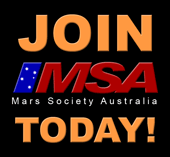Main menu
Spaceward Bound New Zealand 2015
In January 2015, the New Zealand Astrobiology Initiative (NZAI) organised an engaging, 6-day expedition for Kiwi educators and researchers, introducing them to the wonders of the Taupo Volcanic Zone in the central North Island. Partnering with NASA and incorporating speakers from all around the globe, Spaceward Bound New Zealand 2015 exposed its 50 participants to astrobiology research through a series of hands-on field trips and promoted New Zealand as a world-class site for astrobiology research.
Spaceward Bound is an inquiry-based astrobiology and educational Moon-Mars analogue science expedition organised in New Zealand by NZAI and partners. Spaceward Bound originated at NASA Ames Research Center in 2006. The primary mission of Spaceward Bound is to train the next generation of spaceexplorers by teaming teachers and scientists to explore scientifically interesting but remote and extreme environments on Earth as analogues for human exploration of the Moon, Mars, and other planets:
http://quest.nasa.gov/projects/spacewardbound
Previous Spaceward Bound destinations have included the USA, Canada, Namibia, the United Arab Emirates, and Australia.
New Spaceward Bound expeditions in India and Romania are in the planning stages.
New Zealand as an astrobiology field site
New Zealand features some of the best sites in the world to study astrobiology-related extreme environments. The geographical setup, dynamic and active geological setting, and the science capability of New Zealand support the study of astrobiology. Within its Taupo Volcanic Zone, New Zealand has unique extremophiles in the hot springs, and recent and current explosive volcanism.
Other regions in the country include access to the K-Pg Boundary (Marlborough Region) and the Dry Valleys of Antarctica. New Zealand is also a world-leader in biosecurity (essential to planetary protection) and has a rich cultural heritage derived from exploration, as Polynesians and Europeans arrived here guided by the stars. New Zealand’s scientists encompass most of the required fields in astrobiology: microbiology, ecology, biosecurity, physics, astronomy, radio astronomy and geology. This represents an accessible yet rich
knowledge base of local expertise.
Reports and Papers

